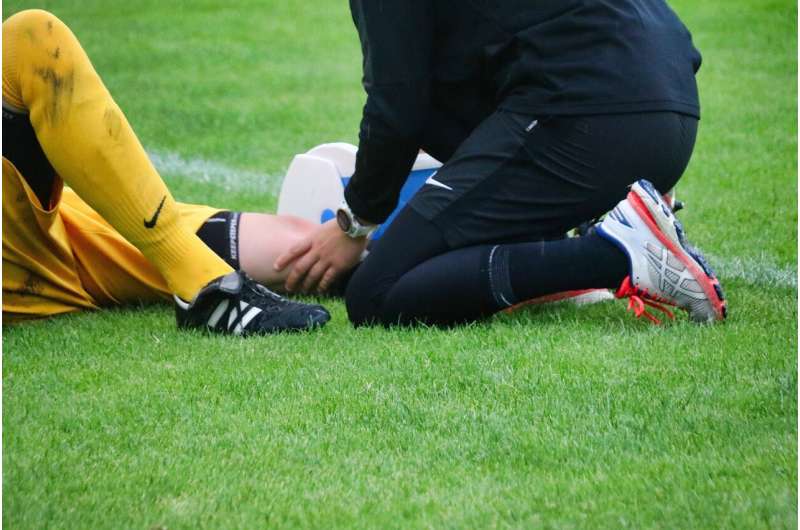This article has been reviewed according to Science X's editorial process and policies. Editors have highlighted the following attributes while ensuring the content's credibility:
fact-checked
peer-reviewed publication
trusted source
proofread
Last whistle: Tackling tough issues athletes face when they retire from sports

Life changes radically and can be rough on athletes who are forced to retire, and a new study has found that women and younger people are more prone to experience symptoms of anxiety than more mature sportsmen.
In one of the first studies of its kind, Flinders University researchers surveyed 173 former athletes, half of them women, who retired from competition level within the past 20 years.
"Surprisingly, we found women are almost 2.3 times more likely to report anxiety and also younger people in the survey presented greater symptoms of anxiety, which has shown to be linked with reduced well-being and poorer sleep," says Ph.D. candidate Ashley Montero, lead author of a new article published in Frontiers in Psychology.
"This may be that men in general are less willing to reveal their struggle with anxiety and mental health in a sport setting.
"Retirement from sport can mean potential increased weight gain, less regulated eating behaviors and reduced physical activity which can contribute to the symptoms of insomnia symptoms and sleep apnea which we see in these retired athletes.
"Although we found comparable sleep difficulty between women and men after retirement, both groups presented high risk for poor sleep health.
"Our work in this area aims to raise awareness and improve support strategies to help athletes make a 'successful' transition from their sporting life."
By expanding our understanding of potential risk factors and profiles for mental ill-health and disordered sleep, sports organizations can better identify and mitigate these risks by tailoring support accordingly, he says.
"While we endorse the implementation of education and support on health optimization during an athlete's sporting career, we argue that that equal, if not greater, priority should be placed on support throughout retirement transitions."
While social integration and connectivity in community sports can help in retirement, so can specialist roles at an elite level, including programs focusing on mental health and goal setting, and promotion of good sleep practices.
Adopting career transition interventions, suitable exercise and nutrition programs and continued support would facilitate easier transition out of sport, says co-author Professor Murray Drummond, who competes in masters competition surf lifesaving.
"We need to take a multidisciplinary approach to developing intervention frameworks combining elements of education around sleep, mental health, physical activity, nutrition and help-seeking for athlete career transition to facilitate healthier exits from sport," says Professor Drummond, from the College of Education, Psychology and Social Work.
Fellow Flinders University researcher Dr. Catherine Litchfield, who did not take part in the study, can speak first-hand of the effects on mental health after she was forced to retire from touch football with injury.
"When my injuries forced me to stop playing sport it was really confronting and I didn't get a lot of support," says Dr. Litchfield, an Associate Lecturer in Active Communities and Social Impact.
"It felt like I lost an aspect of my identity. I couldn't call myself an athlete anymore and it negatively affected my mental health."
Dr. Litchfield, who focused on social support, injury and female sport in her Ph.D. studies, admits she's "still trying to find a replacement for sport in my life.
"I try to stay physically active through gym and rehabilitation exercises but that loss of community that comes with leaving sport is tricky to replace.
"It's really hard to find that motivation to be active and healthy when sport is no longer an option.
"I know I would have benefitted from more guidance about what I could do to stay healthy and active outside of sport."
More information: Ashley Montero et al, Athletic retirement: factors contributing to sleep and mental health problems, Frontiers in Psychology (2024). DOI: 10.3389/fpsyg.2024.1350925




















